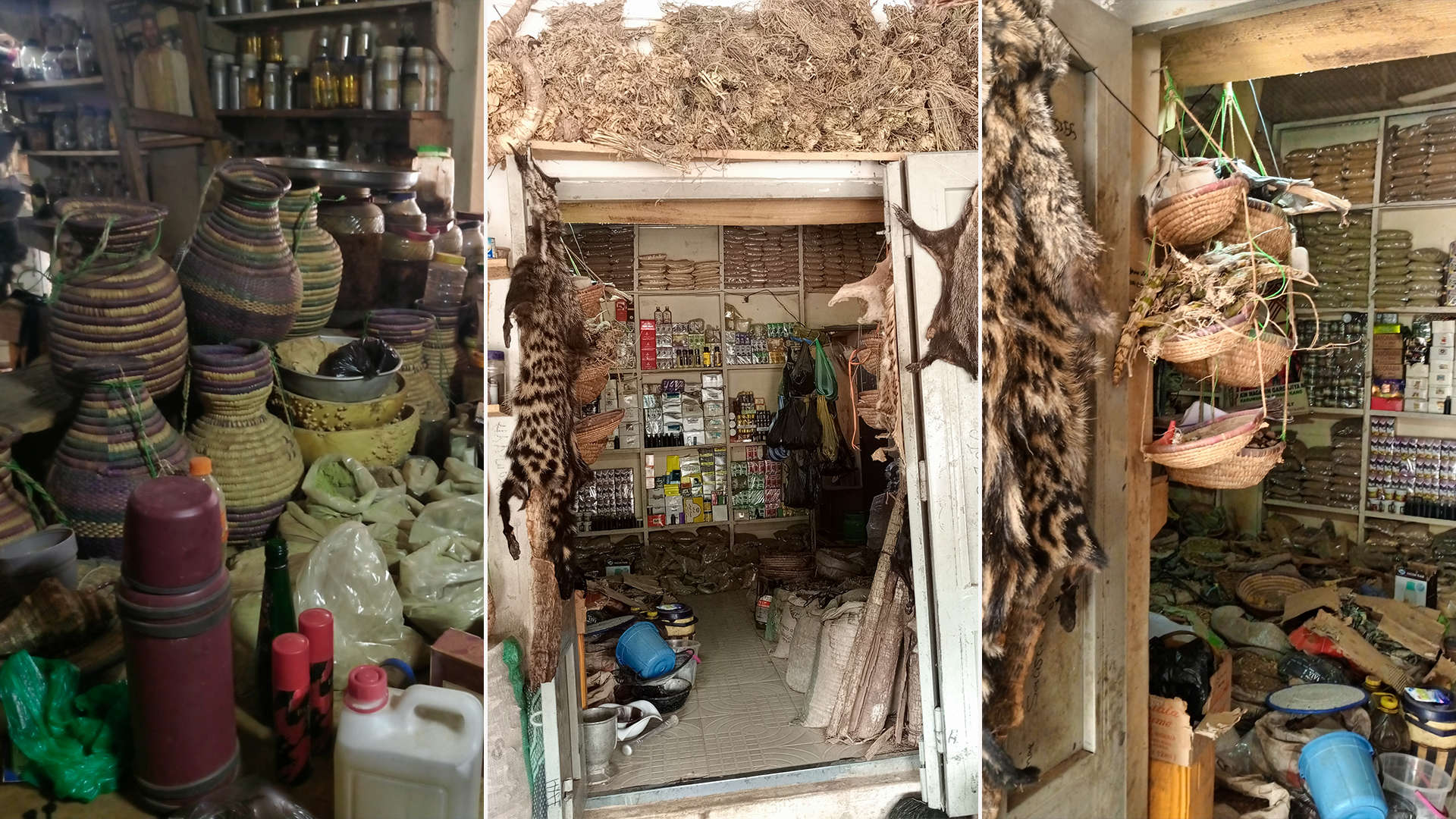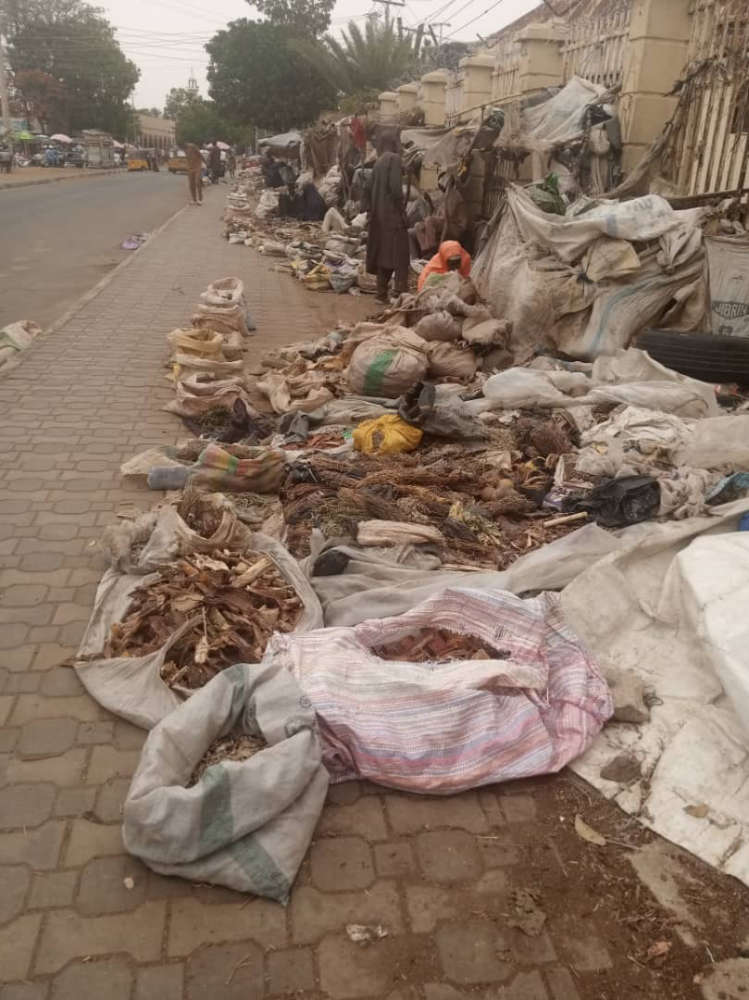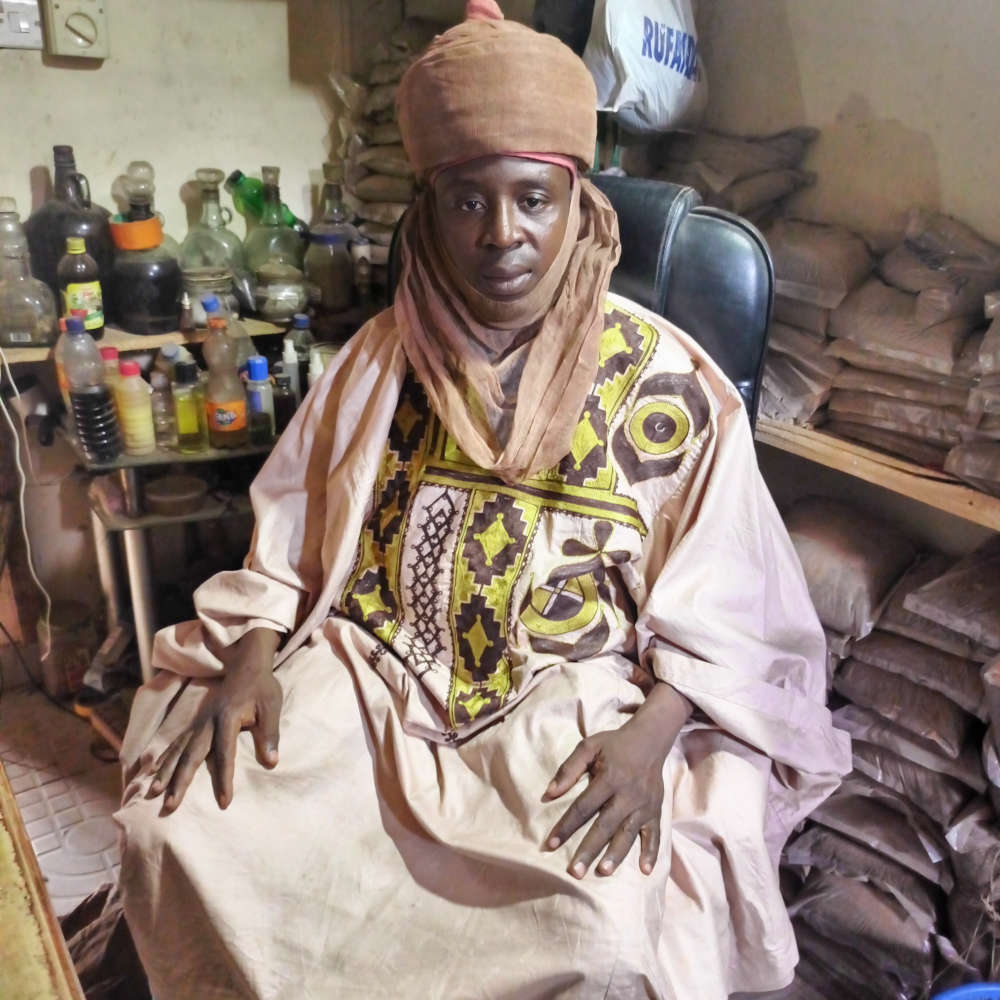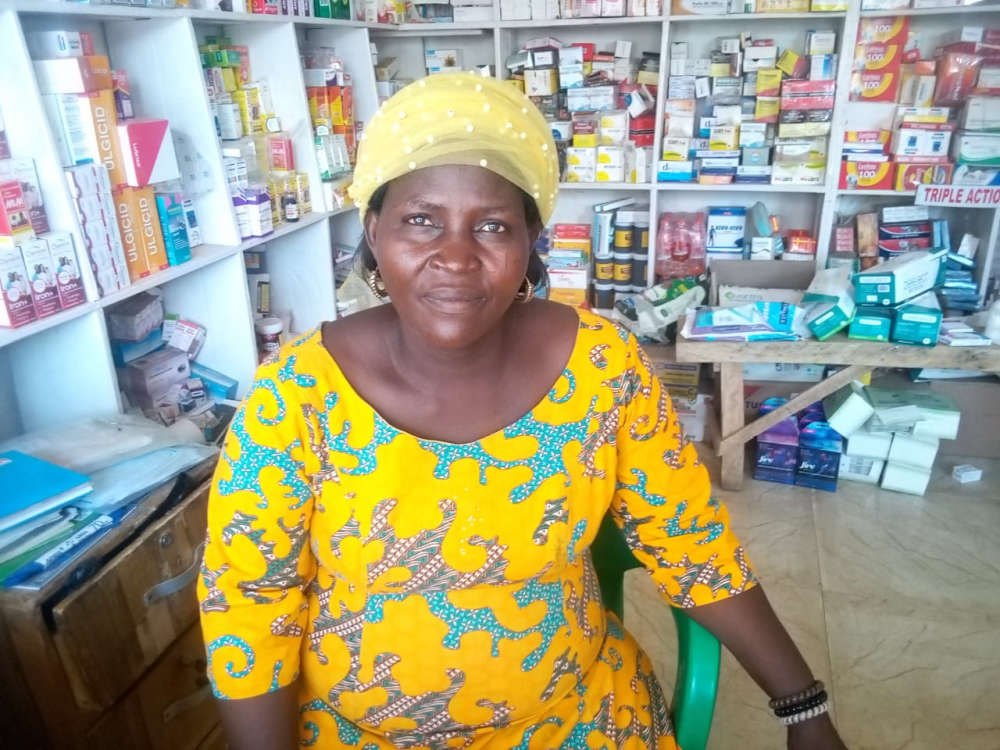
Economic hardship in Nigeria has led many patients to adopt traditional medicines instead of orthodox ones, as retail prices for routine medications have increased by 300 percent in one year due to fluctuating exchange rates, inflation, and the removal of fuel subsidies.
About 70 percent of drugs consumed in the country are imported, according to the National Agency for Food and Drug Administration and Control (NAFDAC).
Findings by Nigeria Info revealed that these factors are forcing many Nigerians to prioritize affordability over necessity when buying their life-saving medications. Others are opting for traditional medicines.
Habibu Isma'il Kuntau has reduced his family's monthly drug spending by half after switching to herbal medicines. He said financial difficulty and the hike in the price of orthodox drugs influenced his decision.
"I am tired of going to the hospital with my family, and they give me a lot of different drugs - about 80,000. A friend recently introduced me to a traditional medicine center along Dorayi in Kano; now I get things cheaper there,” he told Nigeria Info.
Another patient, Maimuna Jarma, a 48-year-old diabetic, used to spend nearly N35,000 monthly. She now uses traditional drugs to replace hospital prescriptions due to financial constraints.
“I was told at the hospital during random and fasting tests that my sugar level was unstable due to the consumption of traditional herbs without diet or prescription,” she said.
Ibrahim Ishaq, a diabetic patient whose mother and wife are also diabetic, said the burden of managing diabetes has affected the well-being of his family.
“With this economic hardship, I had to introduce traditional medicines to all of us. I am stable, but my wife and mother have had health challenges lately.
“The doctor introduced them to insulin, but we ignored it because it was very expensive,” he explained.
Glaucoma Patient Opts for Herbal Leaves Rather Than Eye Drops
A politician in Rivers State switched to herbal leaves as an alternative to eye drops, for treating glaucoma, due to economic constraints.
“Sometimes, I used herbal leaves if I don’t have enough money to buy the eye drops that were prescribed by medical doctors,” said Callistus Okere, a former councilor in the Etche Local Government Area.
Samuel Ruth, 25, was diagnosed with heart disease in 2021 in Kaduna and has been fighting it, defying prescribed medications and using traditional herbs for treatment.
"It has been difficult for us to access medication from the hospital because my family is poor. Even though I am aware of the possible implications of taking local herbs, I’m left with no option," she said.
Mrs. Rachel Ojo, a 74-year-old high blood pressure patient in Bauchi, has been lying to her doctors while patronizing traditional medicine vendors and blaming the sudden price hike for her actions.
"The drug I used to buy before for ₦500 now goes for ₦1,500 and ₦2000 or even more, and I don't have the financial capacity to be buying it; I’m not even free to tell my doctors about this," she said.
The case isn’t better in Nasarawa State, where Adamu Musa, despite his doctor's advice to undergo surgery at the Dalhatu Araf Specialist Hospital, is being treated by a traditional medicine vendor.
Patient Wants Formal Recognition of Herbal Medicines as Alternative for Nigerians
Conversely, Mr. Kamilu Oladejo, a 59-year-old high blood pressure patient, believes he has been doing better health-wise since quitting orthodox medicines.
“I neglected orthodox medicines not as a result of the high cost but because I usually experienced a relapse, which was making me visit the hospital always without any positive changes,” he said.
According to him, the modernization of herbal medicines has dispelled misconceptions about their poor quality and proper prescription.
He suggested that manufacturers should be licensed and trained for modern treatment options to give citizens the option to choose the form of treatment they prefer, either traditional or orthodox.
Herbal Vendor Records Bumper Patronage, Charges N500 Monthly
Traditional medicine vendors are enjoying increased patronage, while pharmacists are experiencing a drop in daily sales due to the harsh economy.
Abubakar Ibrahim, a Bauchi-based herbal merchant, reports a rise in daily visits to his makeshift shop, from 10 to 30 due to the challenging economic climate.
The herbal merchant said the cost of his herbal drugs for diabetic patients is N500 monthly.

Bauchi herbal market
Ibrahim's N500 monthly diabetic medication cost is significantly lower than Dr. Ayuba Mugana's N40,000 for medications and basic investigations.
On his part, Malam Mohammed Bello, who has treated patients with traditional medicines for over ten years, is surprised by the recent patient influx.
“My sales have increased by 40 percent recently. A lot of people are complaining that they don't have money to go to the hospital, so they prefer to take traditional medicines to treat their illnesses.
"Some of these patients are referring others who are battling with the illness to us, and they are coming because we give traditional herbs that have no side effects," he said.
Herbal Merchant Criticizes Colleagues Embracing Modern Diagnostic Machines
Salisu Usman, the traditional leader of herbal medicine practitioners in Kano State, criticized some herbal merchants who rely on modern diagnostic machines or medical laboratory tests to prescribe herbs.
Usman believes genuine traditional medicine sellers only need ancestral skills to predict illness.
He also criticized some medical practitioners who patronize them (traditional healers) secretly but condemn them publicly. Usman said he's treating about 20 well-known health workers with herbal medicines.

Salisu Usman (Dan-Mai-Ganye)
“Any traditional medicine practitioner you see using modern techniques or hospital tools to test his or her patient is not genuine.
“We have our own way of examining our customers. I know where to check their eyeball to know the level of their heartbeats; through their lips and palms, I can know their blood pressure; and through their nose, I can find out how their intestines are functioning.
“Some doctors used to refer their patients to us for medication. Currently, I have about 20 well-known health workers that I’m treating with these herbal medicines; you will be shocked if I mention their names,” he said.
Chemists Record Low Sales Amid Economic Hardship
When contacted, Mrs. Ada Anigbogu of Lamb of God Pharmacy lamented the drastic drop in her sales of orthodox drugs by about 35 percent.
“Many of our customers have shifted to traditional medicines because of the expensive cost of orthodox products nationwide, and the prices are not stable due to the dollar exchange rate,” she said.
On his part, Pharmacist Olugbenga Ajayi, the chief pharmacist at the Obafemi Awolowo University Teaching Hospital, Ilesa, Osun State said the number of patients buying drugs at the hospital's pharmacy has not reduced, but many patients have cut their purchase drug quantity by half.
Corroborating his claim, Ms. Magret Godiya of Gwaram Sons and Pharmacy said: “Most of our customers have resorted to buying the less expensive drugs and even reduced the quantity.”

Margaret Godiya
Experts Worry Over Potential Harm
As the economic crisis appears unabating, experts are worried about the potential harm of traditional medicines without proper scientific research to understand their efficacy.
Dr. Ayuba Mugana, a consultant with the Abubakar Tafawa Balewa University Teaching Hospital (ATBUTH), expressed fear over the reliance on supplements and traditional medicines for patients.
“People selling supplements and traditional medicines claiming that they cure diabetes are doing a lot of havoc for specialists because people taking such medications normally come back to the hospital with a lot of complications.
“With the statistics of people coming up with diabetes, if any herbal drugs will cure the ailment, then anyone that finds the cure will be the richest in the world,” he said.
Exit of Orthodox Drug Companies a Major Challenge
In the meantime, Nigerian manufacturers are grappling with challenges in local drug production due to adverse government policies and external factors that hinder their efficient operations.
Dr. Ayodeji Adewole, a family medicine lecturer at Obafemi Awolowo University, attributed the significant price increase in drugs to the exit of some drug manufacturing companies.
"When some of these multinational pharmaceutical companies were in Nigeria, their drugs and other products they produced were cheap, but not anymore, since they left," he said.
GlaxoSmithKline Consumer Nigeria Plc, the second-largest drug producer in Nigeria, halted manufacturing operations in October 2023 and appointed a third-party distributor to sell its prescription medicines in the country.
In November 2023, French pharmaceutical company Sanofi announced its exit from Nigeria, appointing a third-party distributor to manage its commercial medicines.
Nigeria Info's attempts to contact NAFDAC and Federal Ministry of Health officials for comment on the exits were unsuccessful at the time of filing this report.
FG Reacts, Harps on Social Productions
However, on May 29, 2024, the Minister of Health, Prof. Ali Pate, addressed some of the key issues when he appeared on national television (Channels TV) in honor of the first anniversary of the Bola Tinubu government.
Prof. Pate admitted the challenges local pharmaceutical companies in the country face. He noted that President Tinubu would sign an executive order to address the problems.
“To unlock the value chain to manufacture some of these drug items in Nigeria, we now have at least three companies that are beginning to lay the foundation, one is already producing.
“We are addressing the fundamental issues; I think we have mentioned the executive order that is about to be signed by Mr. President, which allows us to intensify domestic (drugs) manufacturing and increase the coverage of health insurance (NHIS).
“This is not what we can come and do overnight; we took time to design those efforts, and we began to run them out,” he said.
Minister Laments Profiteering Activities
The minister expressed concern over the actions of 'unpatriotic individuals' exploiting the current naira devaluation and inflation to profit from the situation.
“And again, in the industry, while the local drug manufacturers have been struggling and patiently working in Nigeria despite very difficult circumstances, there are few actors that are also profiteering because of the devaluation of the naira and inflation."
He also confirmed that most of the consumables needed in the health sector are procured abroad and imported into the country, hence the current hike in those commodities.
“So let's be honest with ourselves: Nigeria finds itself many decades after its independence not producing what it needs in the health sector.
“For the first time, we have a president who is addressing these and insisting we have to produce drugs locally for ourselves, for West Africa, and also for the entire African continent.
“It’s a journey we are on, and we should stick with it and not buy the narrative that all will ever be this expensive and unaffordable.
“Also, we can have cheaper drugs and other items, but if you don’t regulate them properly, they may be substandard.
“That is why NAFDAC has been working very hard to ensure that we strengthen the revolution so that our pharmaceutical industry will be able to take the market share when you do the right thing,” he explained.


